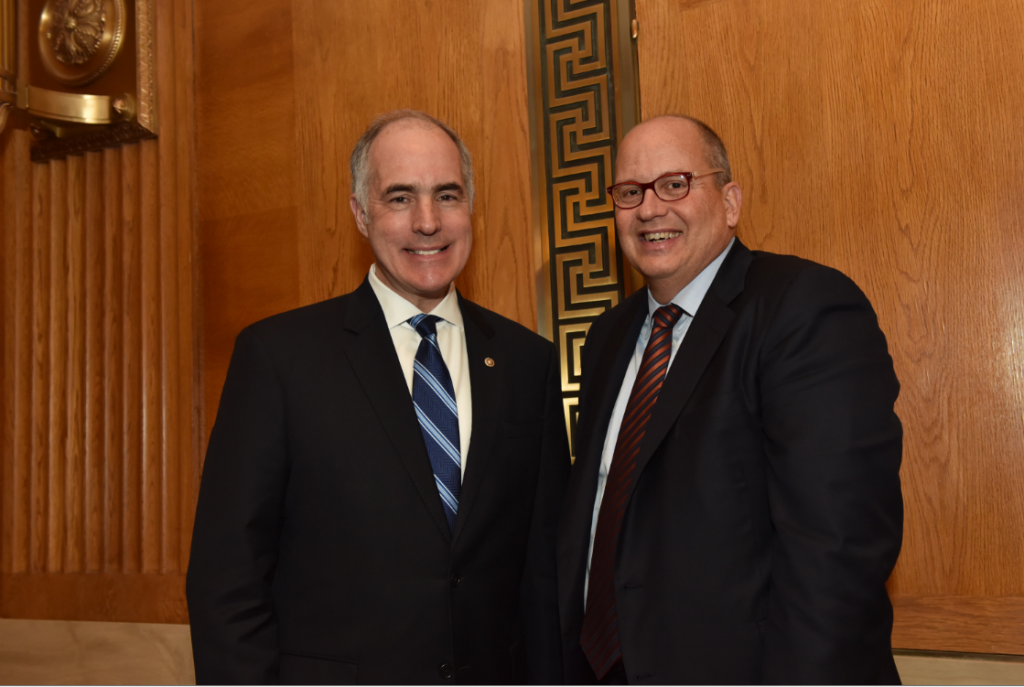Together with Medicare and Medicaid, the Affordable Care Act (ACA) builds health security for people of all ages. Repealing or undercutting the ACA without a meaningful replacement would jeopardize the health and well-being of millions. Accordingly, we are concerned that several recent proposals from the Trump administration could undermine the health law and destabilize the public and private insurance markets.
Read More
This week, economist Austin Frakt outlined the economic and health impacts associated with Medicaid’s lack of dental coverage for adults in many states. These associations range from an increased risk of cancer and heart disease, to complications for pregnancy, to social stigma and difficulty finding work.
While Medicaid requires dental coverage for children, coverage for adults is optional. Currently, there are 17 states that offer comprehensive adult dental benefits.
Medicaid’s lack of a comprehensive adult dental benefit in most states makes the health and well-being of people with Medicaid less robust. But Medicaid’s sparse dental coverage is still superior to the coverage Medicare offers most beneficiaries.
Read More
This week, President Trump submitted his annual budget request to Congress. The administration’s plan includes legislative proposals and detailed funding recommendations for Fiscal Year 2019 (FY19) which runs from October 1, 2018 through September 30, 2019.
Read More
Late last week, Congress passed and the President signed a sweeping spending bill that will fund the government through March 23 and raise the spending caps imposed by the Budget Control Act of 2011 for two years, paving the way for a longer-term spending agreement. The legislation – the Bipartisan Budget Act of 2018 (BBA of 2018) – also contains a number of health care provisions important to people with Medicare and their families, including changes to Medicare Part D prescription drug coverage that will close the donut hole in 2019.
Read More
The Medicare Rights Center is hard at work in our nation’s capital advocating for policies that protect and strengthen Medicare for older adults and people with disabilities.
We are currently working to prevent lawmakers from using the increased federal deficit that resulted from the Tax Cut bill as an excuse to cut or restructure Medicare, Medicaid, or Social Security. While Congress approved legislation preventing automatic cuts, there is still a gaping revenue shortfall of $1.5 trillion or more, putting these programs directly in the cross-hairs of policy-makers seeking to pay for the tax cuts.
Read More
This past fall, the Medicare Rights Center’s national consumer helpline staff and volunteers were hard at work assisting people with their Medicare coverage options. Fall Open Enrollment is the time of year when people with Medicare can change their coverage, and it is Medicare Rights’ busiest season. During this time—which takes place from October 15 through December 7 every year—Medicare Rights answered more than 3,000 questions for older adults and people with disabilities. Helpline counselors and staff assisted clients with reviewing their current coverage, comparing their Medicare Part D plan and Medicare Advantage plan options, and discussing the benefits of Original Medicare versus Medicare Advantage.
Read More
Over 300 people attended the Medicare Rights Center’s 2017 Annual Awards Dinner in New York City on October
16. Kirk Adams, executive director of the Healthcare Education Project (HEP), was honored at the event along with
HEP Co-Chairs George Gresham, president, 1199SEIU United Healthcare Workers East, and Kenneth E. Raske,
president, Greater New York Hospital Association. HEP is a a unique labor-management alliance that works to protect
and expand access to quality, affordable health care for all New Yorkers. Nancy Richardson, a Medicare Rights
helpline volunteer, was also recognized for her years of dedicated service.
Read More
Lindsey Copeland joined the Medicare Rights Center as the Federal Policy Director this past December. Based in the Washington, DC office, Lindsey is responsible for formulating, directing, and implementing Medicare Rights’ federal policy and advocacy agenda. She informs policymakers, stakeholders, and the press about the challenges facing people with Medicare, as well as the administrative and legislative solutions that Medicare Rights supports to address these issues.
Read More
The Medicare Rights Center recently spoke with former staff member Mary-Ann Etiebet, M.D., who is currently the executive director at Merck for Mothers, about her time at Medicare Rights and what made her become a generous donor to the organization. Mary-Ann has more than two decades of experience improving health care outcomes for vulnerable populations, and her work began when she was hired at Medicare Rights as a health advocacy fellow in 1996, and she continued on as an education associate the following year. She remembers how Medicare Rights grew during her time there, with only five full-time staff members when she started and about a dozen when she left, as well as an increased operating budget.
Read More
Medicare Advantage organizations (MAOs) continue to do a poor job of maintaining accurate provider directories. These essential documents, which beneficiaries depend on to make informed plan selection and provider choices, have long been a source of frustration and confusion for Medicare beneficiaries and advocates.
Read More









